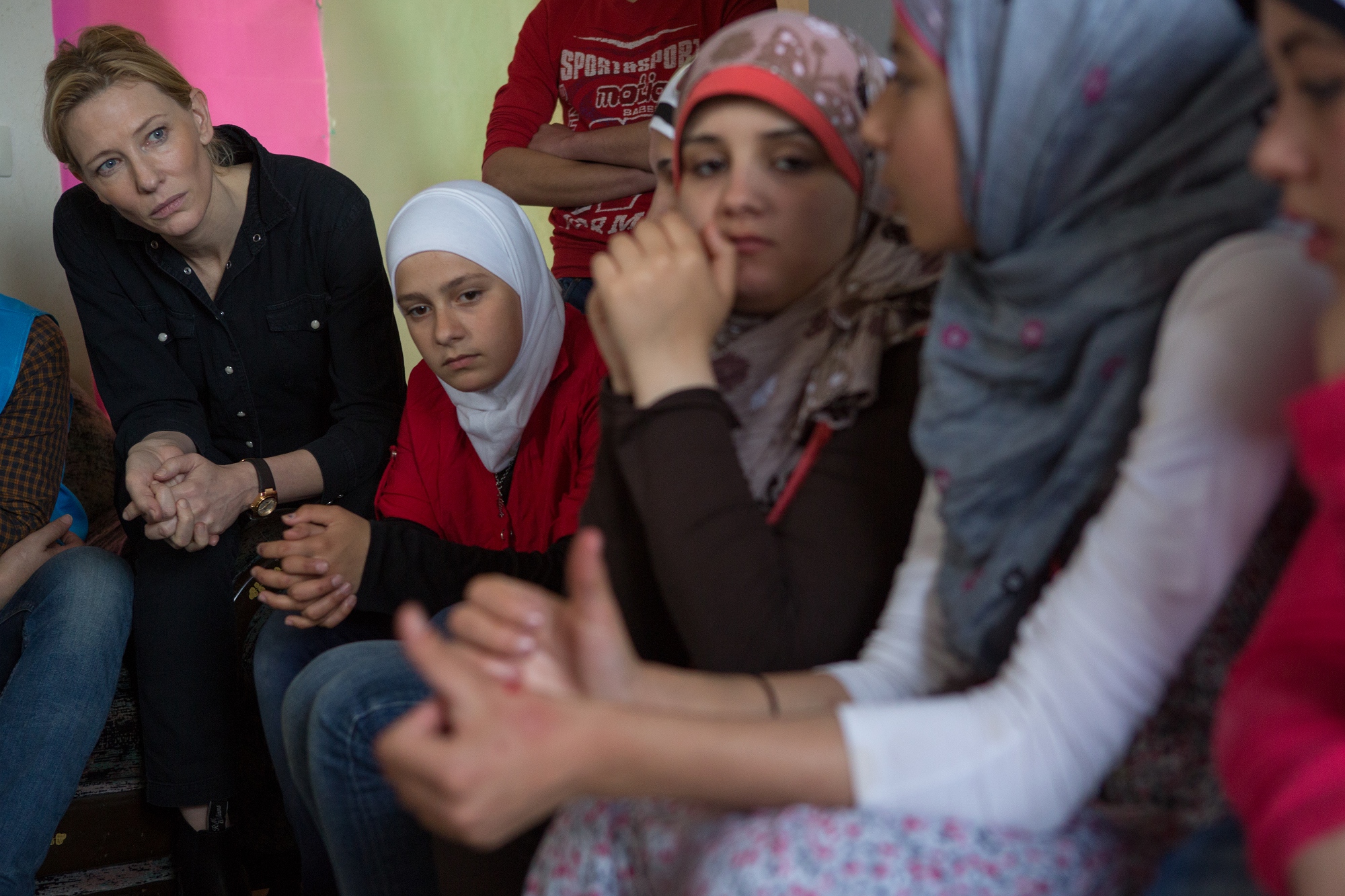Q&A: Soap star Laport raises awareness about UNHCR in Latin America
Q&A: Soap star Laport raises awareness about UNHCR in Latin America

BUENOS AIRES, Argentina, July 31 (UNHCR) - Since becoming a UNHCR Goodwill Ambassador in 2006, popular Uruguayan actor Osvaldo Laport has tirelessly spread awareness about the refugee agency, the work it does and the people it helps. Laport has helped raise UNHCR's profile in the Spanish-speaking world, particularly in his adopted home country of Argentina and elsewhere in Latin America, where millions follow the soap operas that he is most famous for. Earlier this year, he made his first field trip outside Latin America as a UNHCR Goodwill Ambassador, visiting the troubled province of North Kivu in the Democratic Republic of the Congo (DRC). Despite the signing of a peace agreement between the DRC government and rival groups in 2003, sporadic violence continues to rock North Kivu, where UNHCR helps many of the hundreds of thousands of internally displaced people. Laport recently talked to Public Information Officer Carolina Podestá about his work for UNHCR and his trip to North Kivu. Excerpts from the interview:
How did you get involved with UNHCR and the cause of refugees?
For some time, I had been looking for a cause to donate a percentage of the revenues from a new fragrance that carried my name. Some friends suggested UNHCR in 2004. I began to find out more and more about the agency and its work until I reached a point where I decided to get involved. One of the things which most touched me was that the majority of people under UNHCR's protection are women and children.
What was wonderful is that at the time I was named a Goodwill Ambassador by UNHCR, my fragrance was being sold under the name, "A Time for Peace." It was a good coincidence as one of UNHCR's main objectives is the search for peace so that people fleeing their countries can some day go back.
I feel that deep down everyone in the world really wants to be able to reach out to others, hug them and make them smile. Unfortunately, there are still many men, women and children who are waiting.
You visited the eastern Congo in June. What was the situation like there?
I couldn't summarize the humanitarian situation. What I discovered was that the capacity for pain in human beings is endless and in each camp I visited, I felt shame as a human being hearing all these stories . . . [from] a community of pygmies, displaced Congolese, Rwandan and Angolan refugees, child soldiers, women who were victims of abuse . . . It's like a nightmare from which I find it hard to wake up.
What did you learn from the experience?
I'm still working out what this first field mission taught me. At first, it was coming to terms with an idea, with an unknown and remote place. Today, almost a month since my return and back among my family, I'm still struggling to cope with the emotions that I wake up with nearly every morning - the images and the sadness.
When I arrived in the DRC I was a musungu (white man in Swahili), but when I left I felt like a rafiki (friend), thankful for all the warmth I received there and for so many doors opened to me by people who have lost everything. I found myself in a wonderful country where children smile because they still believe in us, the adults. And that is a huge responsibility.
As a UNHCR Goodwill Ambassador, this experience helped me to understand that there are no immediate solutions to the scale of this humanitarian tragedy, or others like it. I do think we have to work to increase the spirit of collaboration in people, so that it crosses borders and helps relieve the weight of pain that refugees have to carry.
Was there anything that left you stunned and speechless?
Yes, the degradation, discrimination and mutilation of women. The terrible realities of the countless cases of rape which occur each month in the Democratic Republic of the Congo and make me feel ashamed of my gender. I cannot stop asking for forgiveness. There were many other things too, but the difficult emotions I felt when speaking to women there will stay with me forever.
What struck you as the main humanitarian challenges in the DRC?
It's difficult to know where to start. It is vital that children of internally displaced people can attend school and that something is done about gender-based violence. On the one hand there needs to be punishment for these crimes, and on the other a vast team of specialists and professionals to help the victims psychologically.
More and more people are seeking asylum in Latin America. Why do you think this is happening?
Since the beginning of the 20th Century until today, our countries have historically sheltered victims of humanitarian crises, including two world wars. Before, most refugees arriving in the southern countries were from Europe; more recently it's been those in other parts of Latin America who have been forced to seek asylum. Nowadays, thanks to globalization and the openness of the Latin American people, people from different continents have again been choosing this part of the world to rebuild their lives in peace.







